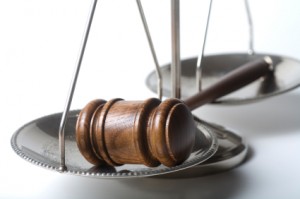9-1-1 Telecommunicators Can Be Sued for Mistakes in New Jersey
According to a new decision from the Superior Court of New Jersey, Appellate Division, 9-1-1 comm centers and their employees are not immune to lawsuits and can be sued for negligence.
The opinion in Massachi v. City of Newark Police Department [1], delivered by Judge J. Baxter, AD, states: “We now hold that N.J.S.A. 52:17C-10 does not afford immunity to a 9-1-1 emergency communications center and to its employees for the negligent rendering of 9-1-1 services, including dispatching police to an incorrect location, failing to keep the caller on the line so she could update the 9-1-1 employee on the location of the perpetrator and failing to broadcast an alert to surrounding municipalities”[2].
The Facts
This case dates back 10 years, to May 10, 2000, when Christopher Honrath forced his ex-girlfriend, Sohayla Massachi, into his car. Two high school girls witnessed the abduction and saw Massachi screaming and crying for help. The girls noted the car’s license plate number and reported the kidnapping to a security guard at the main gate of Seton Hall University. The guard said he couldn’t do anything because the incident did not occur on university property, so the girls telephoned the South Orange Police Department to report the abduction. They provided the license plate number and a description of the car and its occupants.
“At approximately the same time,” according to the case file, “two off-duty Essex County Sheriff’s officers, Melissa Lester and Elwood Thompson, witnessed Honrath pull Massachi into his car. Lester called 9-1-1, and the call was routed to the city’s 9-1-1 emergency communications center. Lester provided a description of the incident, the car and the car’s direction of travel to 9-1-1 operator Debony Venable.”
Venable was unsure how to handle the call, so she consulted a co-worker. Per department guidelines, she should have consulted her supervisor. Venable did enter the information into the CAD system, but she “failed to note the last known location of Honrath’s car or that the car was in motion; misidentified the car as a Chevrolet Blazer instead of a Plymouth Laser; failed to record the vehicle’s path of travel, which resulted in a police unit being erroneously dispatched to the original location even though Honrath was already gone; and failed to keep Lester on the line so that Lester would be able to update the responding units on the vehicle’s path of travel.”
Dispatcher George Mike ran the license plate and identified the name and address of the vehicle’s owner, Honrath. “Although Mike was required by police procedures to also issue a general alert to all Newark police units and to neighboring municipalities, he failed to do so. Mike also had the capacity to contact Westfield police, where Honrath lived, but did not do so.
A short time later, Westfield police were notified by Gary Powell, who shared a Westfield house with Honrath, that Honrath had pulled a woman into his room and that she was screaming that Honrath had a gun. Westfield police responded to the house, knocked on Honrath’s door, and yelled ‘police.’ Two gunshots were then heard from inside Honrath’s room. The officers did not enter the room, but instead waited 30 minutes for the arrival of an Emergency Response Team.” Upon entry, the team found Honrath dead and Massachi unconscious with a bullet wound to the head; Massachi was transported to a Newark hospital where she died two days later.
The court concluded that the dispatchers “bungled” the call and that “Their negligent mishandling of the call, and failure to properly dispatch police, contributed to the murder of Sohayla Massachi by her former boyfriend.”
Outcome
Emergency communications centers and 9-1-1 telecommunicators should read this case in full and review their policies, procedures and training in light of the decision.
“This case has good precedential effect for potential acts of 9-1-1 operators who mishandle calls,” Brian Levine, the attorney for the Massachi family, told The Star-Ledger [3].
References
1. Massachi v. City of Newark Police Department, No. A-5252-07T1, Superior Court of New Jersey, Appellate Division; argued March 8, 2010; decided Aug. 4, 2010.
2. http://www.leagle.com/unsecure/page.htm?shortname=innjco20100804362
3. Spoto M: “N.J. appeals court rules 911 operators can be sued for mistakes.” The Star-Ledger. Published Aug. 4, 2010, and updated Aug. 5, 2010. http://www.nj.com/news/index.ssf/2010/08/nj_court_rules_911_operators_c.html
About the Author
Keri Losavio is the editor of Public Safety Communications. Contact her via e-mail at psceditor@apcointl.org.


